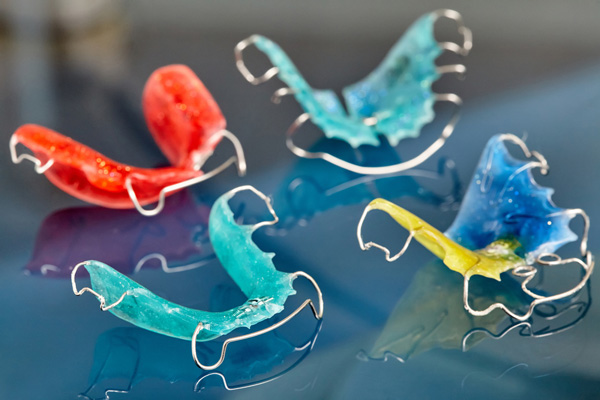After braces are put on, the teeth are susceptible to movement as the ideal position is not yet achieved. The dental retainer will keep your teeth in a new desirable position while gum tissue and periodontal fiber stabilize. Wearer is advised to wear a retainer for 2 years (every night). Night guard is thicker than retainer, and beneficial for patients with night grinding to protect the teeth from grinding damage.
Retainer:
- Retainer is mandatory for the first 2 years, every night
- After 2 years, retainer should be worn (if necessary) on dentist’s recommendation
- Model is taken to fabrication of retainer
CLEAR Retainer — Removable; Customize Thin hard 1 or 1.5mm clear plastic cover surface; passive fit of tooth
HAWLEY Retainer — Removable; With wire on front teeth and molar, plate cover parts of the gum
Fixed Retainer — Wire that bond behind the front teeth, suggest to remove after 1 year
Night Guard
- Serve to protect your teeth from direct tooth to tooth grinding
- Hard or Soft Clear plastic
- Usually 2mm thick to offer durability
- Usually wear on either upper or lower Jaw
- Heavy grinder might need to repeat night guard every 6 months
- Hard night guard can function as dental retainer
Bruxism
- Grind unconsciously at night when sleep. To date, there is no known cure for bruxism
- Sometimes people will grind or clench their teeth due to reasons such as stress, lack of rest genetic, or problems with occlusion. Lowering stress level is advised
- Heavy grinder might have TMJ joint pain when wake up. Teeth might shorten and become sensitive
- Night guard ensures damage is absorbed and no shortening of opposite teeth



